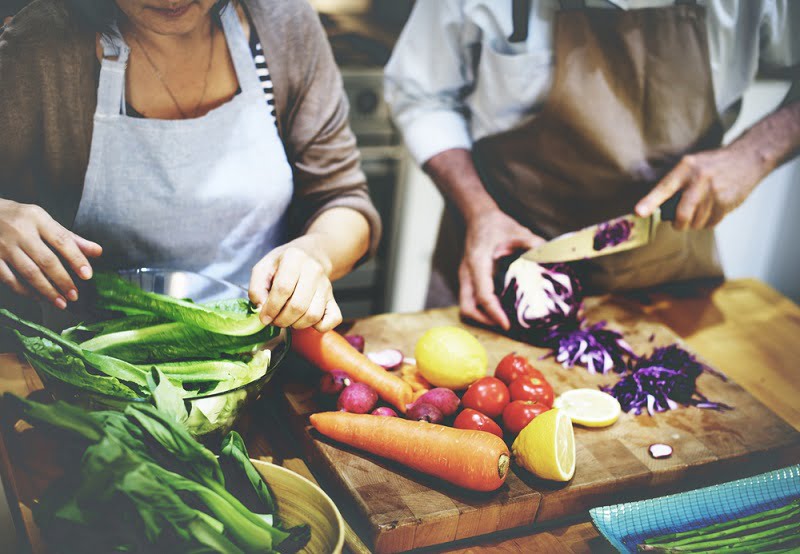There are many factors that can affect a person as they age. For many seniors, aging means less activities and less need for calories. As a consequence, there’s a greater need to consume food that’s rich in nutrients. Some age-related changes that can affect how seniors process food include the following:
- Slower metabolism
- Weaker digestive system (including difficulty absorbing nutrients)
- A decreased appetite (from medication or loneliness)
- Vitamin D and calcium deficiency (from less exposure to sunlight)
- Limited ability to chew
To ensure that your loved ones remain healthy as they age, it’s important that they have a well-balanced diet that’s rich in protein.
Prepare meals rich in nutrients
Below are important nutrients to consider when preparing meals for seniors.
Healthy fats
Healthy fats—such as polyunsaturated and monounsaturated fats—can help lower cholesterol and are better for the heart. These can be found in nuts, fish, avocado, olive, almond butter, tofu, edamame, and eggs. As well, be sure to avoid or limit the unhealthy fats, which includes saturated fats, cholesterol, and trans fat (which can lead to heart and blood pressure problems). Common unhealthy fats include pork fat, margarine, fried food, baked goods, and processed snack foods.
Omega-3 fatty acids
These acids reduce inflammation, which can cause heart disease cancer and arthritis. Omega-3 fatty acids can be found in flax seeds and various types of fish.
Calcium and Vitamin D
Calcium and Vitamin D can help preserve bone health and lower blood pressure. The World Health Health Organization (WHO) recommends at least 1,200 milligrams of calcium intake per day for adults over the age of 50. Calcium can be found in orange juice, dairy milk, almond, soy, and leafy greens (such as kale).
B Vitamins
Make sure your loved one is getting enough vitamins, which includes B6, B12, and folate (also called folic acid). You can find B6 in whole grains and organ meats (such as liver), B12 in lean meats, and folate in dark greens and peas.
Fiber
Fiber prevents diabetes and helps avoid constipation. Foods that are rich in fiber include lentils, peas, beans, broccoli, and brussel sprouts.
Potassium
Potassium helps reduce blood pressure. High-potassium foods include bananas, sweet potatoes, avocado, acorn, spinach, pomegranate, and coconut water.
Hydrate
It’s important for seniors to remain hydrated, especially because people who age do not get thirsty as often but still require the same amount of liquid. As well, limit sodium intake and salts which can cause high blood pressure.
Some tips to help your loved ones eat well
It may be difficult to change your loved one’s diet, but it’s important to ensure they’re eating well. Here are some tips to consider:
- Stock up the fridge with healthy food items and prepared meals
- Add new herbs and spices to make the food tasty
- Use shredded or ground meats and frozen chopped vegetables to make preparing and eating easier
- Make smoothies to blend food with all the necessary nutrients
- Consult with a family doctor on prescribing supplements
As well, keep in mind that people tend to eat more when they’re not eating alone. If you find your loved one living alone, consider introducing them to a retirement home where they can enjoy good company and nutritious meals.









